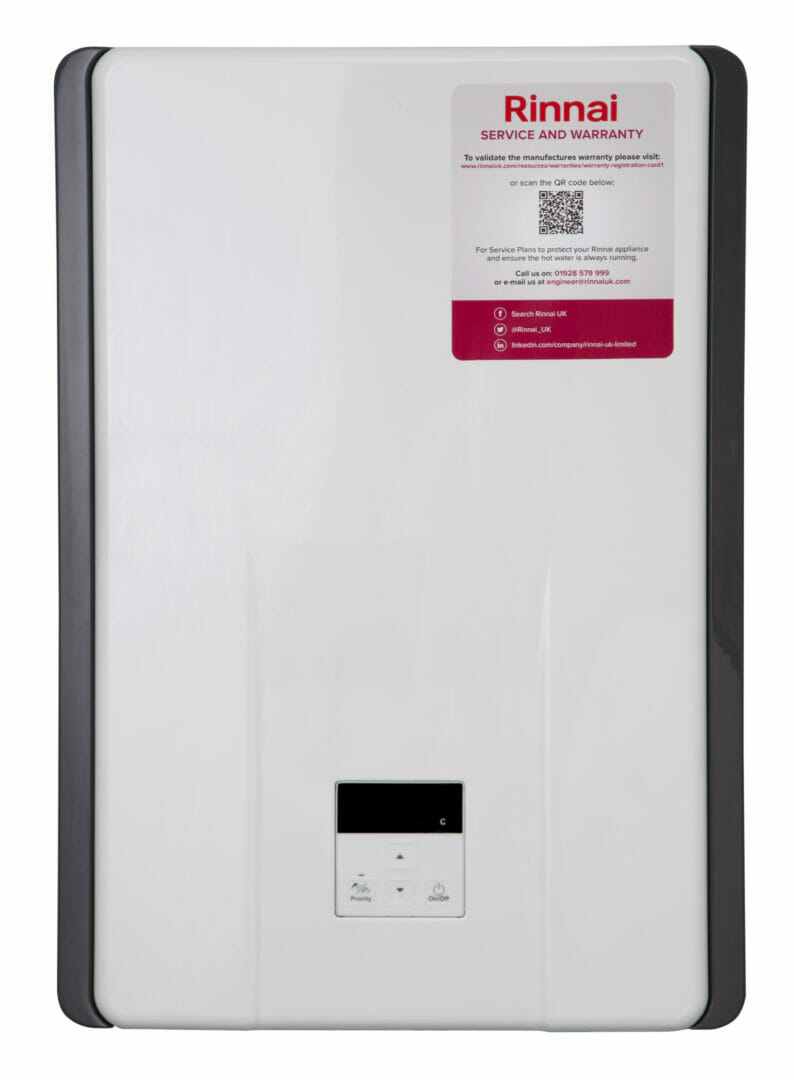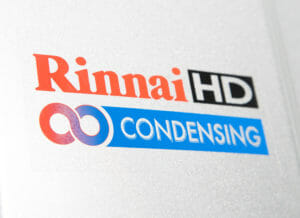
Pete Seddon of Rinnai lists the most important points of ensuring that continuous flow hot water heating units are well serviced and maintained to ensure the longest possible and most economical working life.
There are two very distinct perspectives on the service and maintenance of continuous flow hot water heating units and systems – that of the end user and the one of the installer/contractors. Firstly, we will look at the installer’s viewpoint.
- Make sure of the exact make and model of the appliance before you attend the call. Varying appliances require different service routines. With Rinnai appliances we recommend that a service kit for every appliance is taken and utilised for every service visit. This will also help you to plan the correct amount of time for the job in hand.
- Obtain service and install manuals wherever possible. This goes in hand with the above. This will allow you to see the routine that is required. You should be able to acquire this information from the manufacturer and at the same time you can also speak to a member of the technical department to get a better understanding of the servicing routine.
- If you have never been to the site before it is always worth checking over the installation to ensure the installation complies with regulations and manufacturer’s instructions. Sadly, there are still some sites where the installation and the appliances that do not follow regulations or a manufacturer’s explicit instructions. This could have impact on the performance of the appliances as well as the longevity of the system/appliance. If you think something is not quite right, we advise that you should inform the customer and make them fully aware.
- Water Treatment. There are a lot of areas in the UK that require water treatment for hard water. If you know the area requires Lime Scale protection check that the site has it fitted. There are still a lot of sites that do not have any protection fitted but are in hard water areas. Lime Scale is a problem that can, if not treated properly, have huge consequences with appliances, systems and health. If you are unsure of the area you can check the Local Water Authority or call the manufacturers Technical Department for advice. At Rinnai UK our website does have a Water Hardness check and we can check the Water Authority for you as well – all we need is the area and postcode. Ultimately if there is no protection fitted, but there should be, then advise the customer of this and make them aware of the potential but probable problems that will ensue.
- Detail your work. It is always worth noting down what work has been carried out. If gas pressures must be checked then note them down. If parts must be changed, note what parts have been changed. By just putting “Serviced the Appliance” down on the report may not constitute a proper service has been carried out in the eyes of the manufacturer and could impact on the customers warranty.
- Technical Advice. If, after all the above, there is still something you are unsure about or you want to double check, call the Technical Department of the manufacturer. It is always better to be safe than sorry. Rinnai UK actively encourages questions and discussion, this way you can get peace and good practise. At the end of the day we are here to help you as much as possible. And there is no such thing as a stupid question when it comes to safety and a gas fired appliance.
For the end user or owner:
- Always understand what type of equipment you have, the manufacturer of that equipment and the service requirements and frequencies. Different appliances will have different service requirements at various intervals. It is always beneficial to find this information out because it can impact on the warranty.
- Where possible use engineers who are familiar with the appliances. It is always worth contacting the manufacturer direct. With Rinnai UK we have a list of engineers who have undertaken training and are familiar with the Rinnai products. Majority of, if not all, other manufacturers will either have the same or have their own engineers. By utilising engineers who know the appliances you will have confidence that the servicing will be carried out correctly.
- Always plan. It is always beneficial to find out when your appliances are due and to book them in a few weeks in advance. If you leave it too late you may not be able to get an engineer when you want them. This way to can plan it around your requirements. For example, if your business was dependant on the appliance you would be best planning this in when it was the quietest period or on days when it is not so dependant.
- Ensure you keep hold of all your records of servicing. You should get a service report from the company who serviced the appliance, if you don’t make sure you request one. This is your proof that the servicing has been carried out. Without this paperwork if your appliance ever developed a fault during its warranty period you might be refused the warranty without this proof of service.
FOR MORE INFORMATION VISIT

